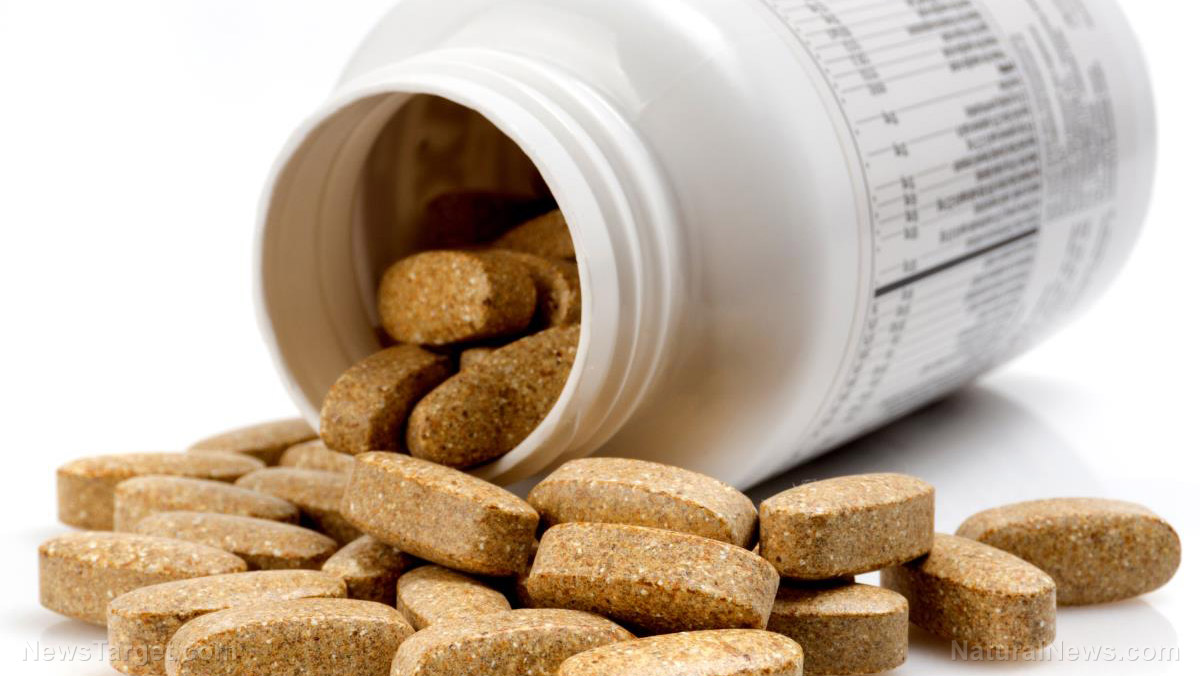The science-backed health benefits of acai berries
08/17/2022 / By Olivia Cook

Acai berries are widely acknowledged as a nutrient powerhouse for the wide array of phytonutrients and potent antioxidants they contain. A study published in the Journal of Agricultural and Food Chemistry has recognized the beneficial properties of acai (Euterpe oleracea) used in food and nutraceutical products.
Listed below are the health benefits of acai berries according to science. (Related: Nutrient-dense acai berries: The ultimate superfood for optimal health.)
Antioxidant
Acai berries are superior to other superfruits in terms of antioxidant content – having 10 times the antioxidant content of grapes and two times the antioxidant content of blueberries.
A study that appeared in the Journal of Agricultural and Food Chemistry showed the anthocyanin and polyphenolic compounds present in acai berries and demonstrated their respective contribution to the overall antioxidant capacity – offering a wide range of supportive health benefits, in addition to scavenging cell-damaging free radicals from the body. (Related: Acai berries top the charts for antioxidant potency but commercial processing may destroy nutritional content.)
Anti-cancer
Another study that was published in the Journal of Agricultural and Food Chemistry demonstrated the bioactive effects of acai polyphenols in their glucoside and aglycone forms on the anti-proliferation and induction of apoptosis (“cell death”) in leukemia cells. (Related: Study shows acai berries may kill cancer cells.)
Cardioprotective, anti-hypertensive and vasodilating
Eating acai berries every day as part of a healthy breakfast supports the healthy functions of blood vessels. In one study that appeared in the Journal of Cardiovascular Pharmacology, researchers reported on the cardiovascular and metabolic effects of acai berries, stating that the antioxidant activities of the rich polyphenols in acai berries protected epithelial cells from oxidative stress by inducing nitric oxide production that lead to endothelium-dependent relaxation, reduce reactive oxygen species and regulate key targets associated with lipid metabolism in different conditions, such as hypertension, renal failure and metabolic syndrome.
In addition to manganese, copper, iron and magnesium, acai berries contain a good amount of potassium, an important component of cell and body fluids that help control heart rate and blood pressure.
Cholesterol-lowering and anti-diabetic
A study published in the journal PLoS One reported on the growing evidence on the protective role of acai berry polyphenols and exercise training against Type 2 diabetes, one of the most prevalent diseases in the world, being responsible for a marked rate of mortality and morbidity in the general population.
A study that appeared in The British Journal of Nutrition reported that polyphenol and fiber derived from fruits, such as acai berries, are key mediators of anti-diabetic effects by modulating the digestion of starch and other carbohydrates and mitigating hyperglycemia in diabetes.
Acai berries are also rich in medium-chain fatty acids like oleic acid (omega-9) and linoleic acid (omega-6) that support healthy cholesterol levels already within the normal range — reducing the risk of heart disease.
Neuroprotective
Acai berries are rich in omega-3 and -6 fatty acids and full of antioxidant polyphenols that boost the development of the central nervous system and protect healthy brain cells from oxidative damage, which is linked to poor memory and learning.
A study that appeared in the journal Central Nervous System Agents in Medicinal Chemistry presented recently reported case studies showing the efficacy of flavonoid-rich foods, such as acai berries, in reducing neurodegeneration and preventing or reversing the age-dependent deterioration of cognitive function.
The researchers also point out that flavonoids present in acai berries have the potential to treat diseases such as Parkinson’s and Alzheimer’s.
Immuno-stimulant
Eating antioxidant-rich foods like acai berries support a healthy immune system. A study that appeared in the journal PLoS One reported that polysaccharides, including arabinogalactan, isolated from acai berries induce innate immune responses.
These polysaccharides were able to induce cell recruitment or T cell activity that promotes cell-mediated immune responses and is required for host defense against intracellular viral and bacterial pathogens.
Probiotic
Acai berries contain prebiotics that feeds beneficial, or good, microbes in your gut to maintain a balanced composition of gut microflora that is crucial for a healthy digestive system. According to a study that was published in International Dairy Journal, the fiber and polyphenols in acai berries serve as probiotics, which help friendly gut bacteria thrive.
Kidney and bladder protector
The acai fruit from the Amazon region in Brazil contains bioactive compounds, such as alpha-tocopherol, anthocyanins and other flavonoids with antioxidant and anti-inflammatory properties.
Researchers in a study that appeared in the journal International Urology and Nephrology reported on the value of the Brazilian acai berry as a therapeutic nutritional strategy for chronic kidney disease patients. They recommended acai berry consumption as a natural nutritional therapeutic strategy for chronic kidney disease (CKD) patients who present oxidative stress, inflammation and dysbiosis (an imbalance between the types of organisms present in a person’s natural gut microflora).
Anti-skin aging
Acai berries are a rich source of antioxidants, including oleic acid (omega-9 fatty acid) and vitamins A, C, E and B-vitamins, which support skin health by preventing free radicals from causing damage to your skin, such as ultraviolet (UV) damage that contributes to skin aging. Oxidative stress is also linked to many skin problems. Acai berry’s Oxygen Radical Absorbance Capacity (ORAC level) is over 3,500 – much higher than any average fruit like apple and banana.
Sleep aid
Acai berries contain 19 amino acids, phytochemicals and vitamin B6 (pyridoxine), which plays an important role in your body’s natural production of the sleep hormone serotonin, which is involved in the modulation of sleep.
Appetite suppressor
Acai berries are packed with dietary fiber and polyphenols that induce satiety and make you feel full for longer, discouraging eating, according to a study that was published in the Journal of Medicinal Food.
Adding acai berries to your healthy diet can help you achieve reasonable weight management goals, especially if you combine this with regular exercise.
Muscle builder
Being rich in minerals, proteins and high-quality fat, acai berries support muscle growth and development by rebuilding your muscle fibers while also restoring the essential nutrients lost during workouts.
Natural energy booster
Acai berries are rich in B complex vitamins riboflavin (B2), niacin (B3) and pyridoxine (B6) and vitamin K that function as co-factors and support healthy metabolism of carbohydrates, proteins and fats. Acai berries also contain omega acids that improve metabolism rate and boost energy level.
Mood regulator
B-vitamins in acai berries, especially pyridoxine or B6, also support healthy dopamine levels and play an important role in your body’s natural production of dopamine – supporting healthy dopamine levels that can positively influence your mood.
Watch the video below about the top health benefits of acai berries.
This video is from the Health Ranger Store channel at Brighteon.com.
More related stories:
Polyphenols in acai found to have a prebiotic effect that boosts digestive health.
Acai berry: Six ways this superfood can change your health.
5 health benefits of acai berry that make it a real superfood.
Sources include:
Submit a correction >>
Tagged Under:
acai berries, alternative medicine, anti-aging, anti-diabetes, antioxidant, brain health, digestion, food is medicine, food science, functional food, heart health, immune system, natural medicine, nutrients, phytonutrients, skin health
This article may contain statements that reflect the opinion of the author
RECENT NEWS & ARTICLES
BrainNutrients.News is a fact-based public education website published by Brain Nutrients News Features, LLC.
All content copyright © 2018 by Brain Nutrients News Features, LLC.
Contact Us with Tips or Corrections
All trademarks, registered trademarks and servicemarks mentioned on this site are the property of their respective owners.




















